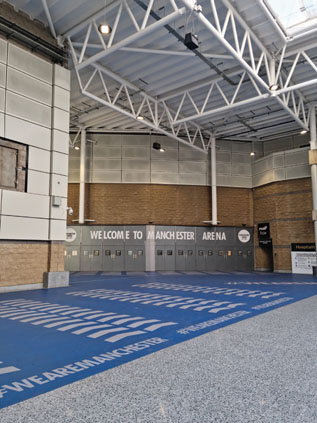Now that the Government has published the results of last spring’s Protect Duty consultation, it’s time for the security industry to realise, and decide, whose side it’s on, writes Mark Rowe.
The document from the Home Office outlining the consultation responses, and its own response, failed to spell out just how indifferent the public and business is to such a Duty; for good reasons. The public outcry about crime of 2021 was after the murder of Sarah Everard and was about violence, from harassment (physical and online) to rape, against women and girls; not about terrorism.
Who then is pushing for the Protect Duty? The Home Office, an institution so dysfunctional that in the 2000s it had prisons and criminal justice taken away from it; which in the 2010s ran a campaign of hostility to the Windrush generation of immigrants, which led (eventually) to an apology and a compensation scheme, which has provoked a further scandal for being so slow. Slowness is a characteristic of the Home Office; the Protect Duty has arisen out of the 2017 terror attacks, and we are now in 2022, and the Protect Duty is unlikely to come into force this year, even if it does make the Queen’s Speech.
Who else? It was in the Conservative Party 2019 manifesto; since when have manifestos been sacred? This is a government that has had to apologise to the Queen for holding a party while the Queen was mourning during lockdown for Prince Philip. Countering terrorism ought to be non-party-political, but in truth everything is political; everything is ammunition for a political party, in power or in opposition.
The security industry by coming out for a Protect Duty, therefore, risks siding with the Priti Patel Home Office and one political party’s manifesto, that reflects only one strand of that party’s ideology (ten years ago, the Coalition was all for reducing the ‘burden’ of regulation on government). Set against them are businesses querying the need for such a Duty, struggling as some sectors are to return to a bare living after covid lockdowns; and some in security doubting that such a Duty would be more than a tick-box exercise. Or, at the other extreme, it would come with an inspectorate punishing and fining venues and their owners, from parks to churches to beaches, for not complying; when surely the criminals to focus on should be terrorists, online and in the physical world?
Except that the Fishmongers’ Hall terror attack of November 2019, and Streatham High Street, showed that the avoidable security weakness is not at a venue but among the police, probation, and prisons, who are failing to manage those released early from sentences after convictions for acts of terror; as featured in the December print edition of Professional Security magazine.
The painfully drawn-out path towards a Protect Duty has at least shown that there are two wings (at least) to the security industry, which incidentally shows as pernicious any claim that the security industry needs to speak with one voice. The wings of thought inside private security mirror a wider split in culture in the country; between liberals and not. It is wrong to assume that security people are all for gates and locks and saying no and denying access to people. Security people managing museums, art galleries, hospitals, university campuses and cathedrals, want to let people in if at all possible, going with the grain of those institutions, and make visitors feel welcome, while providing enough protection so that all people can do what they are there for.
Adding unnecessary security, or security where the risk is low – even when the threat is catastrophic, if it ever happens, such as a suicide terror attack – does not work because non-security-employees let alone visitors ignore it, or work around it, the same as they do with IT. The Protect Duty runs the risk of adding to risk, if it makes people feel safer while the actual threat – unknown numbers of radicalised people – is not touched by the Duty.
Or, even if brought in, the Protect Duty will give security a bad name. A sensible enough suggestion online recently has been for an extra 50p or £1 to be added to a venue ticket, although that does overlook the fact that the original Martyn’s Law campaign was only meant for venues like the Manchester Arena (pictured); the Home Office has chosen to propose to extend it to all public places, regardless of risk. A cinema charges extra for bigger seats or seats nearer the screen, where people are prepared to pay more, goes the argument. Except that such banding is a stock in trade of the entertainment business – go to a theme park, and pay extra to go to a fast-queue.
Whereas a 50p ‘security tax’ is proposed for all; for something that customers can reasonably expect they are getting already (and if not, why not?), protection while they are on premises. What hit will the reputation of the security industry take, with its name next to ‘tax’?
The security industry has to hold the line for something thankless; a sense of proportion, against those who would seek to use counter-terrorism and being seen to be ‘tough’ against it for their own ends, not on the evidence or need.









